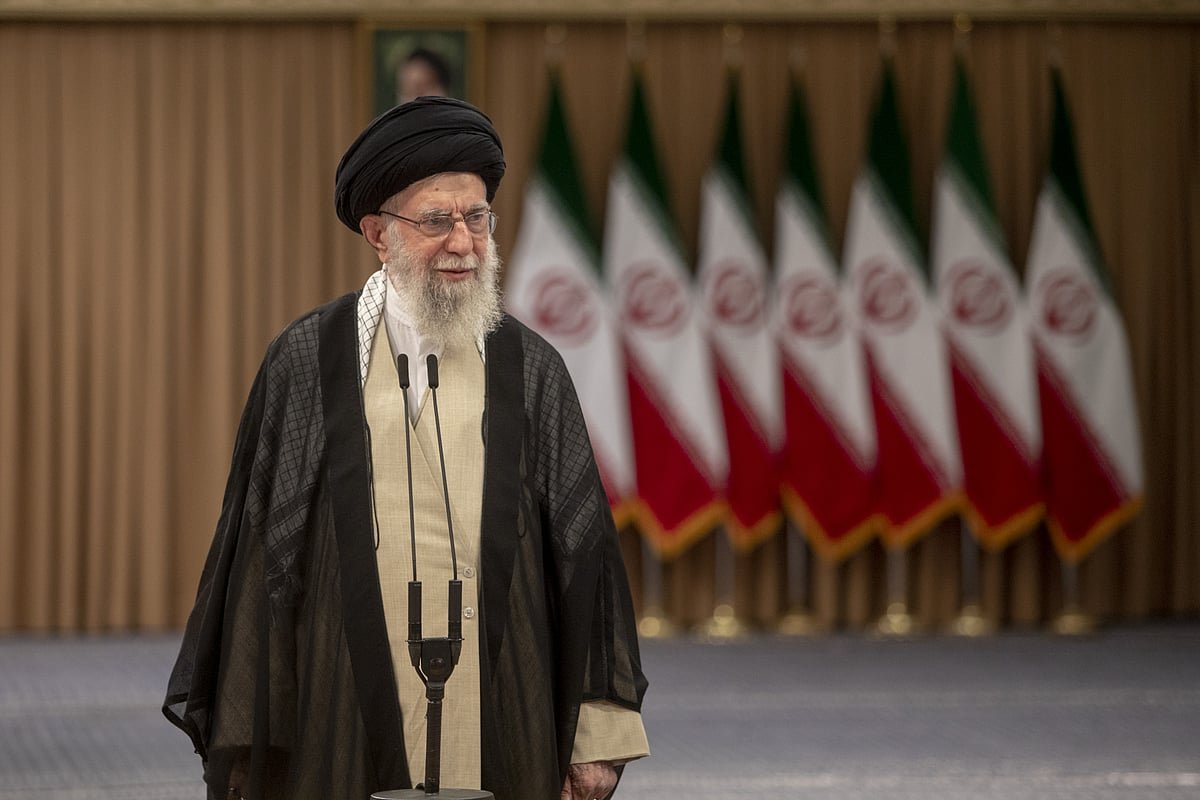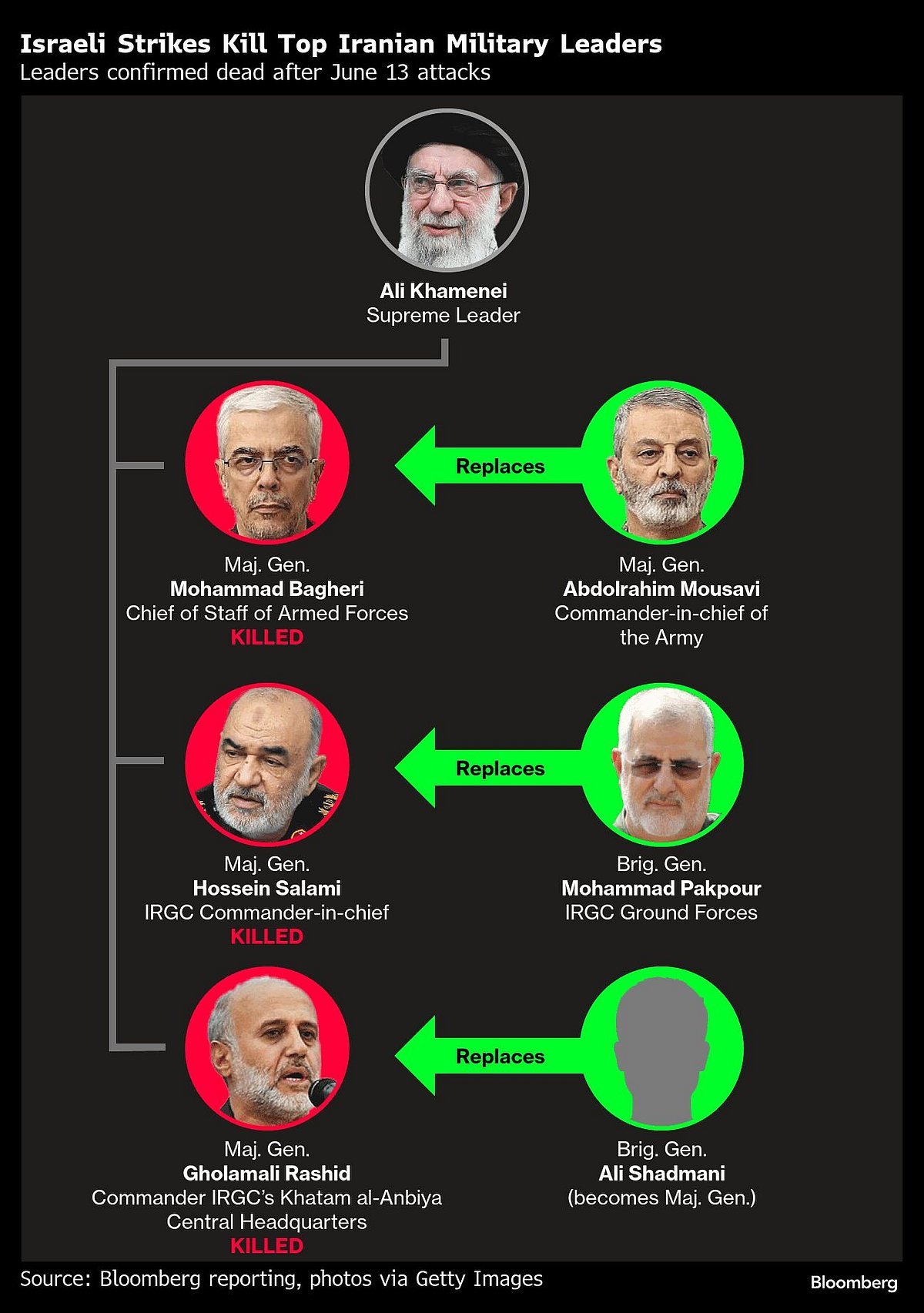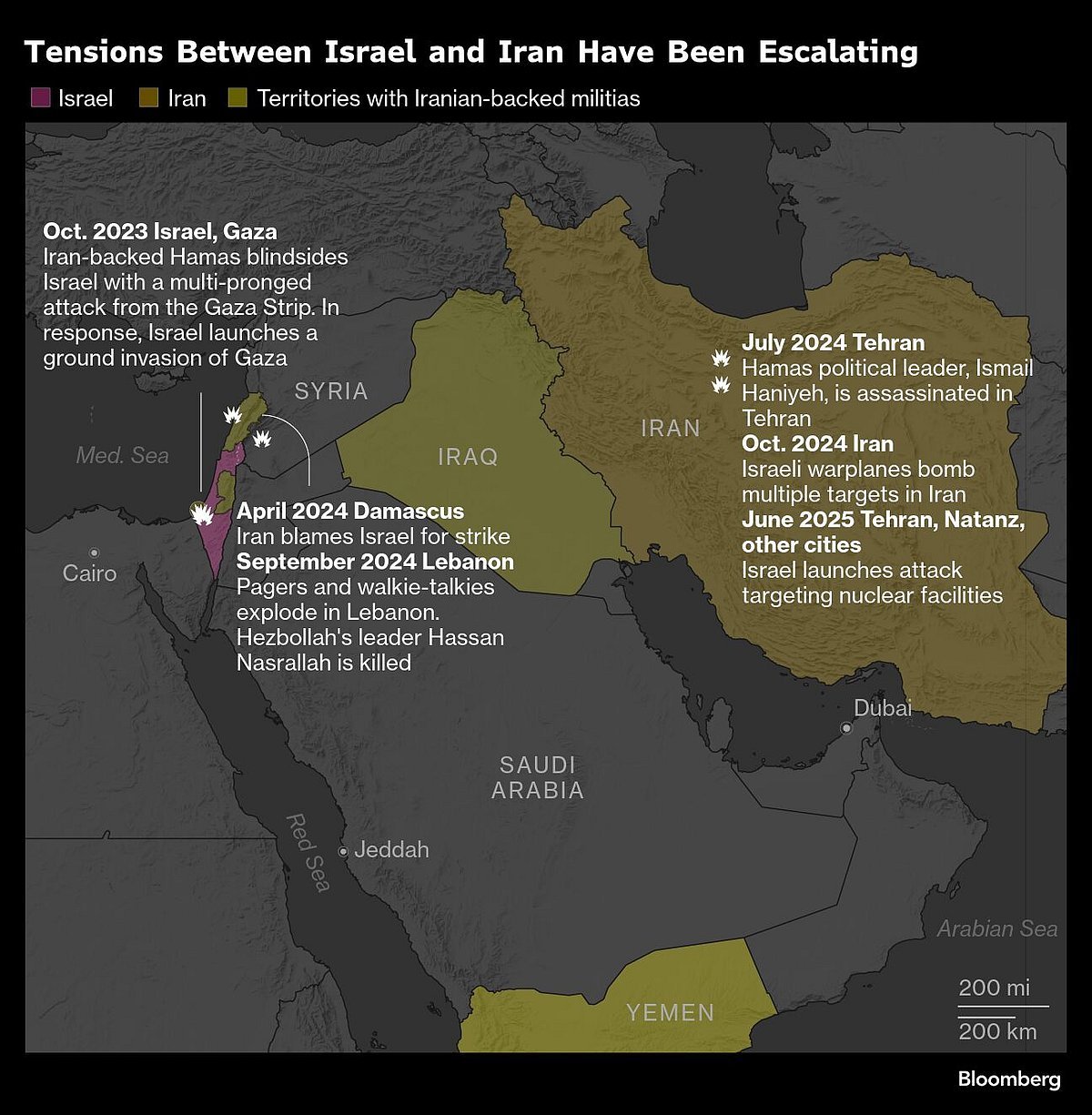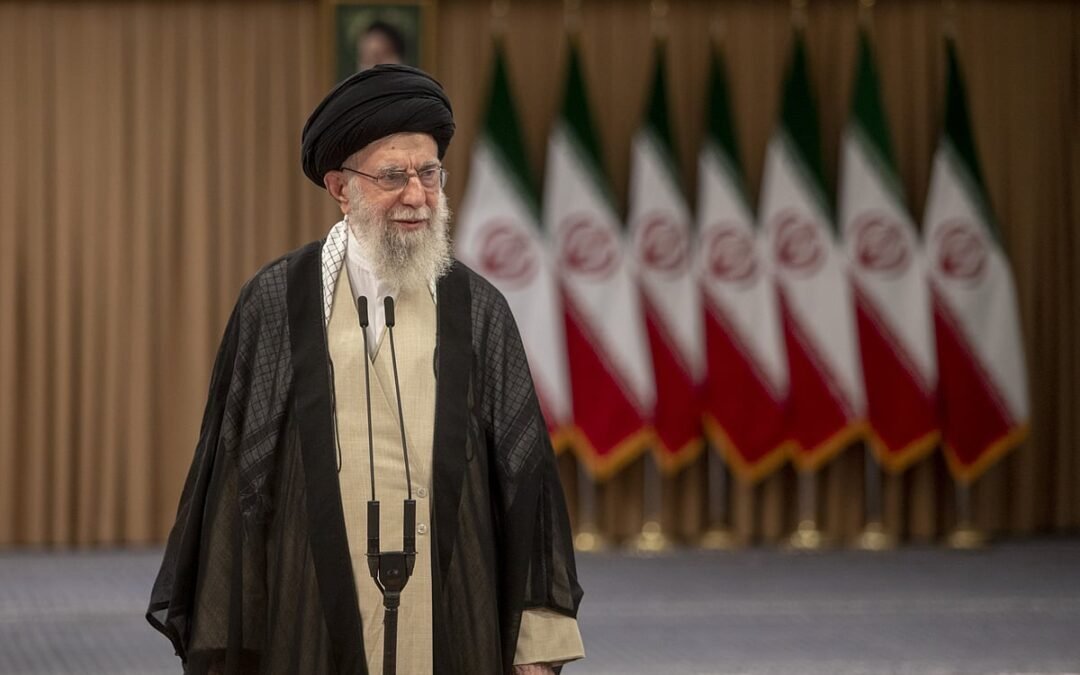Iran fired hundreds of ballistic missiles at Israel in response to an unprecedented attack on its nuclear facilities, escalating a conflict between sworn enemies that threatens to engulf the oil-rich Middle East.
The Islamic Republic targeted Israel with 200 missiles and about 200 drones in four waves of strikes starting Friday evening, according to Israel’s military, some of which breached the country’s air defenses. US forces helped shoot down the projectiles.
Israel maintained its own airstrikes into Saturday, and Defense Minister Israel Katz warned in a statement that “Tehran will burn” if Iran’s assault continues.
The intensity of the fighting represents a turning point for both Israel and Iran, testing new limits in terms of their aggression and willingness to escalate. When the pair targeted each other on two occasions last year, there was a greater time lag and a sense that after an exchange of fire, there would be a détente.
Israel has indicated this operation — aimed at derailing Iran’s nuclear ambitions — could last for weeks, while Tehran has signaled no letup in its retaliation.
Read More: Iran’s Nuclear Sites Hobbled But Not Destroyed, Experts Say
Three people were killed in the Tel Aviv area and at least 40 were injured in multiple strikes, according to police and emergency services. There was video footage of at least one large explosion in Tel Aviv and reports of blasts over Jerusalem. The full extent of the damage is still being assessed.
Israel’s air defense systems, including the Iron Dome and David’s Sling, boast an interception rate upward of 90%. If combined at varying altitudes, the chance of a successful shoot-down increases exponentially.
Israel, which killed top Iranian generals and badly damaged key military infrastructure with its first strikes overnight Thursday, targeted Iran’s defense systems on Friday and early Saturday. Four sites in the East Azerbaijan province were struck on Saturday, while several residential buildings in Tehran’s suburbs have been hit, according to Iranian media.
Read More: Netanyahu Pulls Trigger on Iran Attack After 30-Year Wait
Tehran’s Mehrabad International Airport, where Iran’s air force has a base and Iran Air, the national carrier, is headquartered, also came under attack, the state-run Islamic Republic News Agency reported.
Amir Saeid Iravani, Iran’s ambassador to the United Nations, said 78 people have been killed and more than 320 wounded so far across the country. More than 200 aircraft participated in Israel’s initial operation that hit around 100 locations, and another 50 have been struck since then.
Markets have taken another hit from the surge in tensions: The S&P 500 lost more than 1% on Friday, wiping out this week’s advance. West Texas Intermediate crude futures surged more than 7%, the most since March 2022. Gold and the dollar rose.
Read More: Stocks Sink, Oil Jumps as Mideast Tensions Build: Markets Wrap
The fighting casts doubt on the future of US negotiations with Iran on a diplomatic solution to the standoff over Tehran’s atomic activities. The two sides have held five rounds of talks on a deal to impose restrictions in exchange for sanctions relief, but an agreement hasn’t been reached.
“The other side has done something that makes dialog meaningless,” Esmaeil Baghaei, a spokesman for Iran’s foreign ministry, said, although he didn’t specify whether renewed negotiations scheduled to take place in Oman on Sunday would be called off.
“The attack on Iran’s nuclear facilities will undoubtedly influence the country’s future nuclear strategy,” Seyed Hossein Mousavian, Iran’s former nuclear negotiator, posted on X. “In fact, NATO, Israel, and the International Atomic Energy Agency have all played a role in paving the way for this strategic shift.”
Further escalation — particularly any targeting of American military or diplomatic facilities in the region — could rally domestic political support for Iran’s rulers and dramatically intensify the conflict. It’s unclear if Tehran is entertaining last-resort options — such as blocking the Strait of Hormuz, one of the world’s vital oil arteries, a scenario that would ratchet up concern among investors.
Iran’s Supreme Leader Ayatollah Ali Khamenei vowed to “act forcefully” in a pre-recorded video message carried by state TV. Israel “should not think that it is over. We won’t allow them to escape unscathed from this great crime they have committed,” he said in a statement released after Iran started its retaliation.
The semi-official Fars news agency citied an unnamed military official as saying the conflict will soon “expand” beyond Israel to US bases in the region.

So far, Iran has chosen to keep the US out of the conflict — a decision that an analysis by Bloomberg Economics suggested was the most likely since Tehran can’t afford to go to war with the world’s biggest economy and most powerful military.
The damage to Iran’s military command structure is considerable. The head of the Islamic Revolutionary Guard Corps, Hossein Salami, and the military’s chief of staff, Mohammad Bagheri, were both killed in Israeli strikes. At least two other senior IRGC members died and several nuclear facilities were targeted.
Amir Ali Hajizadeh, commander of the Islamic Revolutionary Guard Corps’ Aerospace division, was also slain, Iranian state TV reported.

While Iranian Foreign Minister Abbas Araghchi said Friday’s attacks have derailed diplomacy, officials in the region are still pushing for a deescalation.
In a phone call with Araghchi, UAE Foreign Minister Sheikh Abdullah bin Zayed Al Nahyan called for “the highest degrees of self-restraint” to prevent the circle of the conflict from widening. And Oman said its foreign minister is in contact with relevant countries to contain the “tensions and the dangerous military escalation in the region caused by Israel’s direct attacks on Iran,” according to the state-run news agency.

Meanwhile, with the Group of Seven leaders gathering in the Canadian Rockies, the attention will focus on US President Donald Trump’s reaction. Going into the summit, there was a common desire to keep fraught geopolitical issues off the table, but that will be difficult given the knock-on effects of a spike in oil prices on inflation and energy exports.
The region is a big crossroads for shipping of oil and consumer goods, and any all-out war will further strain a global trading system disrupted by the trade tensions.
Trump gave brief phone interviews to a smattering of journalists, but otherwise didn’t take to the cameras to make public remarks. He warned Iran on social media to make a deal “before it is too late.”
Israeli Prime Minister Benjamin Netanyahu and Trump spoke by phone Friday to discuss the conflict, according to a White House official.
(Updates with details on strikes starting in second paragraph, comment from Israeli defense minister in third.)
. Read more on World by NDTV Profit.

